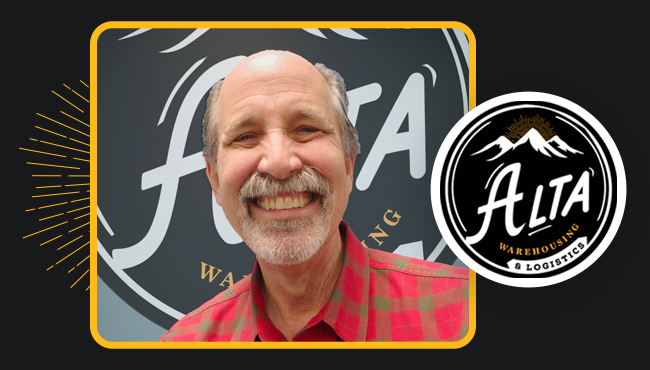Within the beverage industry, the Haralambos name is synonymous with independent beverage distribution in Southern California.
From beer brands like Coors in the 1950s through Pabst Blue Ribbon’s resurgence in the early 2000s, the Haralambos Beverage Company built its reputation on helping beer brands gain traction in the Southern California market. In the 1990s, the distributor not only brought little-known Mexican brewers like Tecate, Carta Blanca and Chihuahua Cerveza to California’s grocery stores but also helped usher in the rise of non-alcoholic New Age beverage brands, pioneering the growth of entrepreneurial successes like Snapple, Vitaminwater, Zico, Honest Tea, and Body Armor, among many others.
That is, until they called it quits in 2019. That year, Anthony “Tony” Haralambos, the last CEO of Haralambos Beverage Co., sold its portfolio to fellow SoCal distributor Classic Beverage. But rather than retire, the garrulous former distributor has found a new focus: beverage warehousing and logistics, through former side business Alta Warehousing and Logistics. The division was launched in 1991, first distributing Mexican beers to grocery chains and later using it as a warehousing outfit for importers. Since the sale of the distributorship, the family has been leveraging its relationships with brands and suppliers to build out Alta.
With over 1.3 million square feet of space spread across the across U.S., the company is “growing like gangbusters,” explained Haralambos, CEO and president of Alta. The company has three locations in Southern California, one in Southern Indiana and another in Jacksonville, Florida.
Reflecting on the decision to pivot, said the CEO and president, the timing has proven to be right.
“The distribution business continues to morph and suppliers are looking for bigger, stronger, more sophisticated distribution partners,” he said. “If a distributor is not willing to really invest behind their businesses, to keep on modernizing it and building relationships and exploring very capital-intensive propositions, then they’re going to be a victim of a buyout.”
Regional beverage distribution is getting increasingly complicated, Haralambos said. Lately, it’s been due to a tight labor market and elevated fuel prices, but over the long term there are simply fewer independently owned-grocery stores and convenience chains where smaller distributors can sell a new brand. Rather than playing the locals, every merchandising decision for national chain stores must be approved by corporate management.
“A distributor doesn’t have any influence. You can’t go to a 7-Eleven or a Kroger somewhere to try to put [a new beverage] on the shelf,” he said. “Back 30 years ago, you could do that. You had influence to go make a sale to a grocery store.”
Warehousing, on the other hand, serves a specific need in the beverage industry, providing a place for up-and-coming beverage brands who might not make their own drinks to “park their product.”
Even though the industry has changed, Haralambos misses the rush of being a part of building brands.
“You become very popular and people at a cocktail party want to talk to you and find out more about your business…When you’re a beverage distributor, you get a lot of attention from people, and it’s fun,” he said.
The Haralambos family’s ties to the beverage industry trace back 90 years to when Tony’s grandfather came to Los Angeles – escorting his sister to an arranged marriage.
“He got the short straw and had to bring her over here, with no money or knowledge of the language barriers, all of that. And the idea was to find a job somewhere to get his return ticket back to Greece,” he said.
After working as a stock boy in East L.A. at a mom-and-pop grocery store, Haralambos’ grandfather realized he wanted to stay in the U.S., eventually buying the grocery and turning it into a chain of stores in the L.A. area. Haralambos’ grandfather moved into the wholesale wine and liquor import business and would watch his son – Tony’s father – build a beer distribution network, starting in the 1950s.
At 67 years old, Haralambos misses the “sexy business” of distribution but he understands that warehousing offers more long-term opportunities as he ushers a new generation into the beverage business.
“I’ve got a great family and great people to work with,” he added. “I’m loving life right now. I’ve got a lot that will keep me going.”

